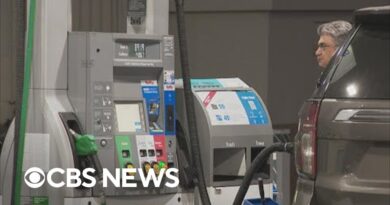
8 Habits of Frugal People To Use When Car Shopping

nd3000 / iStock.com
With both new and used car prices near record highs and sky-high interest rates shrinking buyers’ budgets, anyone in the market for a vehicle would be wise to think like a frugal person when heading to the dealership. Why? Because frugal people aren’t cheap — they’re thrifty.
For frugal folks, the goal of every transaction is to get more for less and keep as much of their hard-earned cash as possible. Over their lifetimes, their prudent habits save them a small fortune. And, if you adopt their mindset when shopping for a big-ticket item like a car, you could save a small fortune in a single afternoon.
Always Scour the Gently Used Market First
Frugal shoppers always check the secondhand market for a cheaper version of comparable quality to whatever they’re considering buying new — and you should do the same at the dealership. If you have your heart set on a shiny new car, truck or SUV, prepare to pay a shiny new premium for the privilege of being its original owner.
“One of the smartest ways to save money while car shopping is to consider purchasing a pre-owned vehicle,” said Patryk Doornebos, owner and lead author of the automotive blog CarTriple. “New cars depreciate rapidly in the first few years, losing about 20% to 30% of their value in the first year alone. By opting for a car that’s around three years old, buyers can benefit from this depreciation curve while still acquiring a vehicle that’s modern, reliable, and often still under warranty. It’s like letting someone else pay the bulk of the depreciation for you.”
Never Treat Financing as an Afterthought
When frugal people need to borrow money to buy something, they never gloss over financing — especially when interest rates are higher than they’ve been in more than 20 years.
“Many buyers focus solely on the sticker price, but the financing terms can significantly affect the total cost of ownership,” said Doornebos. “I advise shoppers to look beyond the dealership for financing options. Credit unions, for instance, often offer lower interest rates than traditional banks or dealer financing. Additionally, understanding your credit score and how it influences your interest rate can lead to substantial savings. Remember, a lower interest rate over the life of a loan can mean saving thousands of dollars.”
Pick Your Moment
Waiting for a sale is part of the frugal lifestyle, which is why savvy car buyers know the times of year when dealers tend to slash sticker prices.
“When it comes to car shopping, timing can greatly impact the deal you get,” said Doornebos. “Generally, the end of the month, quarter, or year are good times to buy as dealerships are trying to meet sales targets and may offer more attractive deals. Also, shopping during late summer or early fall when dealerships are making room for new models can result in better prices on current-year vehicles. This strategy requires patience and a bit of planning, but the financial rewards can be significant for frugal shoppers.”
Do Your Homework
Whether shopping for groceries or gadgets, thrifty buyers never walk into a purchase uninformed — and car shopping is no different.
“Before stepping into a dealership, equip yourself with thorough research,” said 30-year auto industry veteran Frank De Mulder, founder of Classic Car Maintenance. “Understand the market value of the car you’re interested in and check multiple sources to compare prices. This knowledge is your most powerful tool in negotiating a better deal.”
Consider the Total Cost of Ownership
Frugal people are willing to pay a premium for quality merchandise that they won’t waste money to fix or replace prematurely. Similarly, pennywise car buyers know that a slightly more expensive vehicle can pay them back in the long term with fewer repairs — and that a cheaper but less reliable model could cost them more over time.
“Look beyond the sticker price,” said De Mulder. “Consider factors like fuel efficiency, insurance costs, maintenance, and resale value. A car that’s cheaper upfront might cost you more in the long run.”
Always Negotiate the Price
The instinct to haggle is baked into the frugal mindset, and their refined bargaining skills serve them well at the dealership.
“Never accept the first offer,” said De Mulder. “Be prepared to walk away if the deal doesn’t meet your budget. This mindset can often lead to dealerships offering more competitive prices.”
Invest a Little To Avoid Spending a Lot
Although their instinct is always to spend less, thrifty shoppers know that it sometimes makes sense to invest a little bit of money in services that can save them a lot in the long run.
“If you’re buying used, always get the car inspected by a trusted mechanic,” said De Mulder. “This small investment can save you from expensive repairs down the line.”
Know the Value of What You’re Bartering
Finally, frugality isn’t only about spending as little as possible for what you want. It’s also about getting as much as possible for what you have. If you’re trading an old vehicle as part of the price for a new one, knowing what you have could save you thousands.
“It is important to know the true value of your trade-in before you arrive,” said Julie Bausch Lent, managing editor of Car Talk. “I suggest bringing a printout of your Kelley Blue Book value for your current car when you go to the dealership. You are more likely to get that amount from the dealership in trade-in value if you are armed with KBB proof of what your car should be worth. Dealerships have their own valuation processes for vehicles, but making it clear that you have a solid idea of what your car is worth will help you in the negotiation process.”
More From GOBankingRates



